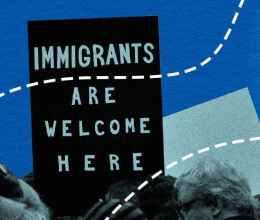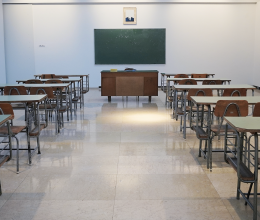In her native country of Burundi, Suavis Furaha was an office manager at the United Food Programme. She left that job behind - along with her country, her husband, and everyone she knew - when she fled the country with her four children in 2013. She fled because she feared for her life and the life of her children; they are safe now but she still fears for the life of her husband, who remains in Burundi. Now Suavis lives in Westbrook with her school-aged kids. She is studying English in Adult Ed; she also speaks French, Kirundi, Kinyarwanda, and Swahili. Her kids all say that they would like to grow up and stay in Maine, and maybe become doctors, lawyers or engineers.
Rehma Rebecca Juma is also from Burundi. She fled the violence alone, last year, when she was 18 years old. Now she is a high school student in Portland.
Suavis and Rebecca, as she is known, both faced a choice: stay in their home country and jeopardize the safety of themselves and their kids, or leave everything behind and start over somewhere completely new - in this case, Maine. The choice, for them, was clear.
Now that they are here, Suavis and Rebecca have applied for asylum status so that they can stay in Maine permanently. It's a process that can take months and even years - and in the meantime, they are in a sort of legal limbo. On one hand, the federal government has given them each a piece of paper saying they are here legally - and that they can't leave the country or the process will start over. On the other, they are not yet allowed to work or receive most benefits. For now, they rely on general assistance, a state program that helps them to pay for rent, food, and medical care.
But even general assistance won't be available to them soon, if a recent LePage administration proposal gets pushed through. That's because Gov. LePage and Mary Mayhew, commissioner of the Maine Department of Health and Human Services, want to begin denying even general assistance to a wide swath of immigrants in Maine, including asylum seekers like Suavis and Rebecca.
Mayhew first proposed denying general assistance to some immigrants in December 2013. Following a public hearing attended by nearly 200 people who opposed the rule change, DHHS submitted the proposal to the Maine attorney general for legal approval. In May 2014, the attorney general informed DHHS that the rule would not be approved as it was likely unconstitutional
Rather than withdraw the unconstitutional proposal, Mayhew altered it to deny general assistance to even more categories of immigrants and informed municipalities that the state would no longer reimburse them for general assistance payments made to the specified people. Further, Gov. LePage declared that the state would cut off reimbursement for all general assistance payments, not only those made to immigrants, to towns that did not adopt the rule change.
If the LePage administration's proposal goes forward, Suavis and Rebbeca will be left with nothing just as they are trying to get on their feet and become contributing members of society. Denying general assistance to asylum seekers is unlawful discrimination, and pushing this rule change forward shows a complete disregard for Maine's rulemaking process. So today, July 17, Suavis and Rebecca asked to join a lawsuit challenging it. The ACLU of Maine and Maine Equal Justice Partners filed the complaint against Commissioner Mayhew on their behalf.
You can read more about the lawsuit here.







